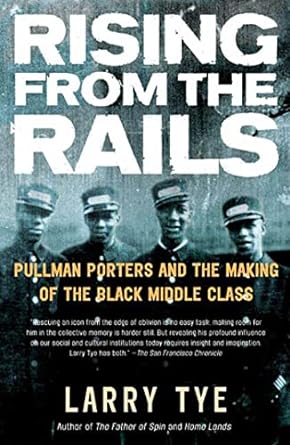


When George Pullman began recruiting Southern blacks as porters in his luxurious new sleeping cars, the former slaves suffering under Jim Crow laws found his offer of a steady job and worldly experience irresistible. They quickly signed up to serve as maid, waiter, concierge, nanny, and occasionally doctor and undertaker to cars full of white passengers, making the Pullman Company the largest employer of African American men in the country by the 1920s.
In the world of the Pullman sleeping car, where whites and blacks lived in close proximity, porters developed a unique culture marked by idiosyncratic language, railroad lore, and shared experience. They called difficult passengers "Mister Charlie"; exchanged stories about Daddy Jim, the legendary first Pullman porter; and learned to distinguish generous tippers such as Humphrey Bogart from skinflints like Babe Ruth. At the same time, they played important social, political, and economic roles, carrying jazz and blues to outlying areas, forming America's first black trade union, and acting as forerunners of the modern black middle class by virtue of their social position and income.
Drawing on extensive interviews with dozens of porters and their descendants, Larry Tye reconstructs the complicated world of the Pullman porter and the vital cultural, political, and economic roles they played as forerunners of the modern black middle class. Rising from the Rails provides a lively and enlightening look at this important social phenomenon.